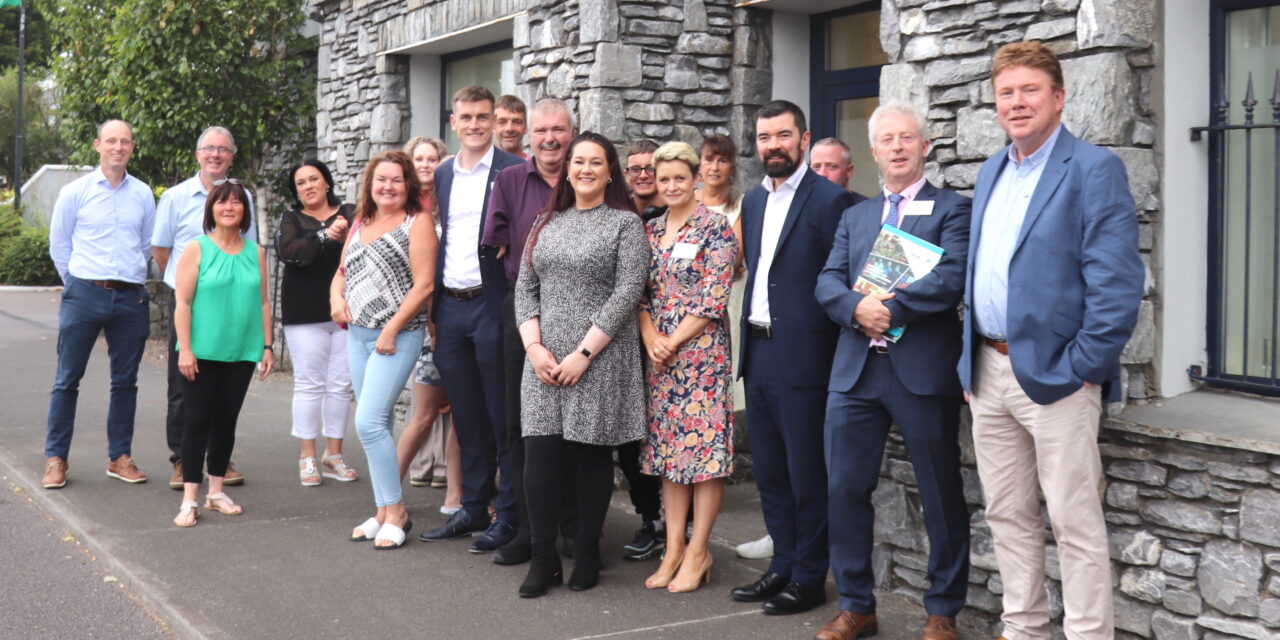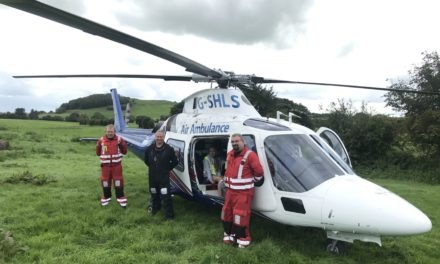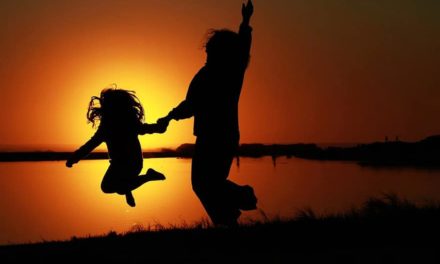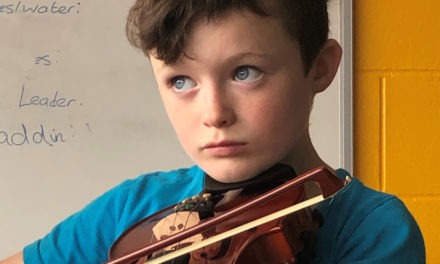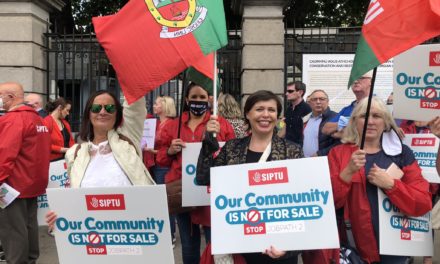Barry Corkery is one of this year’s selectors on the Cork senior football management team. He is less well known in Cork for his day job as a senior addiction counsellor managing two treatment centres in Tralee, Co. Kerry.
Corkery is obviously good with teams and he once told the Irish Examiner that while the HSE got “loads of attention” when things go wrong, the work of his own addiction support teams would blow you away.
He made the point at the tail end of an interview with the newspaper after pandemic lockdowns forced GAA players – and indeed all of us – into hibernation. The newspaper called him for tips for players.
During the interview he spoke about his addiction support colleagues in Brandon House and Edward Court in Tralee.
“You would be just blown away by the work being put in,” he said.
Having visited Brandon House, Changing Ireland can testify that Corkery was fair with his praise. Tralee staff and participants on a special Community Employment (CE) scheme there provided rich testimony about personal, physical and career development goals they reached or were striving towards through the CE scheme.
Many of the participants, as they moved on from addiction, had plans to study at third level, become counsellors themselves, or gym instructors. One former engineer wanted to change his life and was, at the time of our visit, abroad in Scotland on a course in forest meditation.
Such is the level of transformation possible for participants who emerge from a treatment centre clear of their addiction, but not yet ready to slide easily back into society and find regular employment or know what they want in life. By taking a place on the CE scheme, they allow themselves three years to grow and develop.

• Róisín, one of the Tralee participants, sings for her classmates and visitors.
The reason for the gathering in the kitchen on the day Changing Ireland dropped by was a ministerial visit, and there was a quiet, dignified atmosphere in the room as the participants told their stories.
“I had fear coming in here at first and I’m now here two years,” said one person who was afraid at the beginning to even speak. “It has changed my life,” said a fellow participant, and she explained how. A third chose instead of speaking to sing beautifully for the visitors.
The staff explained why the programme works so well. “We go softly. Personal development is a key part of it,” said Daniel O’Shea, CE supervisor. His colleague Tara Conway, piped in: “We follow the academic calendar from September to May. It helps people get structure and routine after they come out of (addiction) treatment.”
The project gets its training through Education and Training Board tutors and classes run from 9am-1pm, Monday to Friday.
“During the summer, they do a lot of outdoor activities such as paddle-boarding, rock-climbing, drumming, meditation, running, art – it’s wide-ranging,” added Tara.
Barry said, “We know it works because it has been tried and tested.” He revealed that people come because of heroin, cocaine and tablet use. “However, alcohol is still the number one addiction that we see in our services next door in Brandon House.”
He said it was helpful to have the CE scheme operate alongside – “under the same roof” as the HSE’s treatment centre. “The opposite of addiction is connection,” Barry added, noting that the locally-based response was “hugely significant”. Minister of State Joe O’Brien was duly impressed.

Some people may not have heard of CE drug rehabilitation schemes, despite their having been in existence for over 20 years.
In 2003, this magazine reported on concerns in Dublin that CE project funding would be cut, and Macro Community Resource Centre was especially worried.
Macro expressed pride in the achievements of the 13 participants on its drug rehabilitation scheme. Each one was a former opiate user. Four were early school leavers who were excelling in education; four more had just run a mini-marathon to raise €500 for the CE project; two others were on work placement and all had completed a range of courses.
Nevertheless, the project felt compelled to appeal to then Community Minister Noel Ahern to maintain funding. While drugs taskforce funding was reduced, “shamefully” said youth workers, the special CE schemes survived. (Today, Macro still operates a CE scheme).
Moving forward a decade, in 2013, there were 47 CE drug rehabilitation schemes around the country, with the vast majority (35) of them in Dublin. Together, they provided training and support to around 1,000 participants. Funded by the Department of Social Protection (DSP), they helped recovering drug users to develop their personal and employment skills and where possible find a pathway to work.
In a study conducted in 2013, the DSP recognised that unemployment was high in many areas where drug use was also most prevalent, yet it nonetheless “strongly valued” the role of the schemes.
Speaking nearly a decade later – last May – Minister of State Joe O’Brien said the schemes have “a very significant social inclusion focus”, they are “well embedded in our local communities nationally” and are “engaged in significant levels of local service support”.
Two months later, he visited the project in Tralee.
The scheme there was begun in 2017 by two community workers, Cathal O’Shea and Robert Carey from North, East and West Kerry Local Development Company.
Tara recalled, “There was one supervisor and 13 participants. Because of the success of the scheme, we got one more supervisor and two administrator roles and increased the participant number to 18.”
Recently, the scheme was approved to take on another supervisor and eight more participants on a bespoke programme for people in recovery and on methadone. The same programme worked well ten years ago for Macro.
How many nationally by 2023?
In 2023, there may be scope to extend such schemes further. David’s ambition for his own area is to see that each ‘hub’ in Cork and Kerry has at least one CE drug rehabilitation scheme.

• Brandon House, Tralee, Co Kerry
Tralee’s TEAM project is a place where together everyone achieves more.
Tralee’s TEAM Project is a Community Employment Scheme for people in recovery from addiction. It gives people coming out of recovery a safe space to find out what they want to do next. Often people in addiction have chaos in their lives. This project provides a calm environment in which every person is nurtured while they grow roots to anchor themselves in life.
Aims
The aims of the scheme are individualised depending on the future goals of the participant. The main aim is to improve the participant’s life by:
Encouraging health and wellbeing.
Supplying access to training and education.
Sourcing relevant work placements and work experience.
Supporting progression to further education and/or employment.
Project partners
The key partners behind the project are:
North, East & West Kerry Local Development Company;
Addiction treatment services – Brandon House, Edward Court, Talbot Grove, and Coolmine Treatment Centre;
The Department of Employment Affairs and Social Protection;
The Southern Regional Drug and Alcohol Taskforce;
Kerry Education and Training Board;
The group participants are all referred by HSE addiction services and by community drug and alcohol workers.
Contact the project
Contact: CE Supervisors Joanne Kelly-Walshe or Daniel O’Shea. (Tara Conway has moved on to a new job).
Email: joannekellywalsh@newkd.ie or danieloshea@newkd.ie
Website
Find out much more here about the project and what participants can typically expect: https://newkd.ie/employment/team-project/
We moved from destructive patterns to building new habits, and it’s transforming our lives

